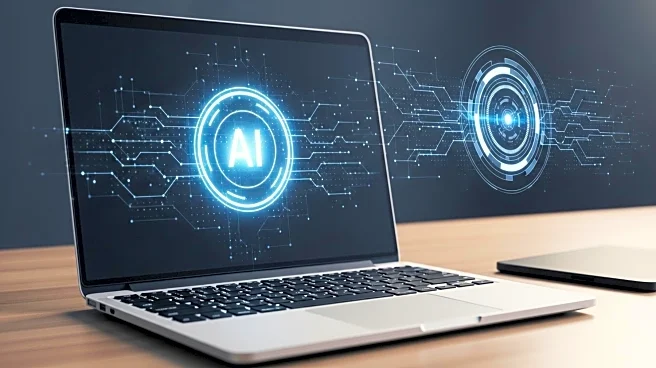What is the story about?
What's Happening?
The job market in the Bay Area is becoming increasingly competitive as companies integrate artificial intelligence (AI) to replace entry-level roles. According to recent data, U.S. job listings fell from 7.7 million to 7.4 million in June, highlighting the challenging landscape for job seekers. Dan Hernandez, co-founder of the San Francisco-based resale tech startup Treet, notes that companies are investing in AI tools to enhance productivity, which reduces the number of available job openings. Salesforce, a major employer in the city, has reported that AI now handles 30% to 50% of its workload. As a result, job applicants are turning to AI tools like ChatGPT to craft cover letters and resumes. However, Hernandez warns that using AI to generate overly polished application materials can backfire, as employers prefer genuine, human-written content. Anthropic, a leading AI company, also discourages candidates from using AI during the interview process, emphasizing the importance of non-AI-assisted communication skills.
Why It's Important?
The integration of AI in the workplace is reshaping the job market, particularly in tech hubs like the Bay Area. As companies increasingly rely on AI to perform tasks traditionally handled by entry-level employees, job seekers face heightened competition and fewer opportunities. This trend has significant implications for the U.S. labor market, potentially leading to a shift in the types of skills and experiences valued by employers. Job applicants who rely heavily on AI tools may inadvertently harm their chances by presenting impersonal application materials. The emphasis on authentic communication skills suggests a growing demand for candidates who can demonstrate creativity and adaptability in a tech-driven environment. This shift may influence hiring practices across various industries, affecting how job seekers prepare for and approach the application process.
What's Next?
As AI continues to permeate the job market, candidates may need to adapt their strategies to stand out. Employers might increasingly focus on assessing real-time skills and personal communication abilities during interviews, moving away from traditional take-home assignments. This could lead to changes in educational approaches, with institutions emphasizing in-class assessments to ensure mastery of material. Companies may also refine their AI usage policies, balancing efficiency with the need for human interaction in customer-facing roles. Job seekers will likely need to develop a nuanced understanding of AI tools, using them to enhance rather than replace their personal touch in applications.
Beyond the Headlines
The rise of AI in the job market raises ethical and cultural questions about the future of work. As AI tools become more prevalent, there is a risk of widening the gap between those who can effectively leverage technology and those who cannot. This could exacerbate existing inequalities in access to employment opportunities. Additionally, the emphasis on human-written content highlights a cultural preference for authenticity and personal connection, which may influence broader societal attitudes towards technology and automation. Long-term, this trend could drive innovation in AI development, focusing on tools that complement rather than replace human skills.















